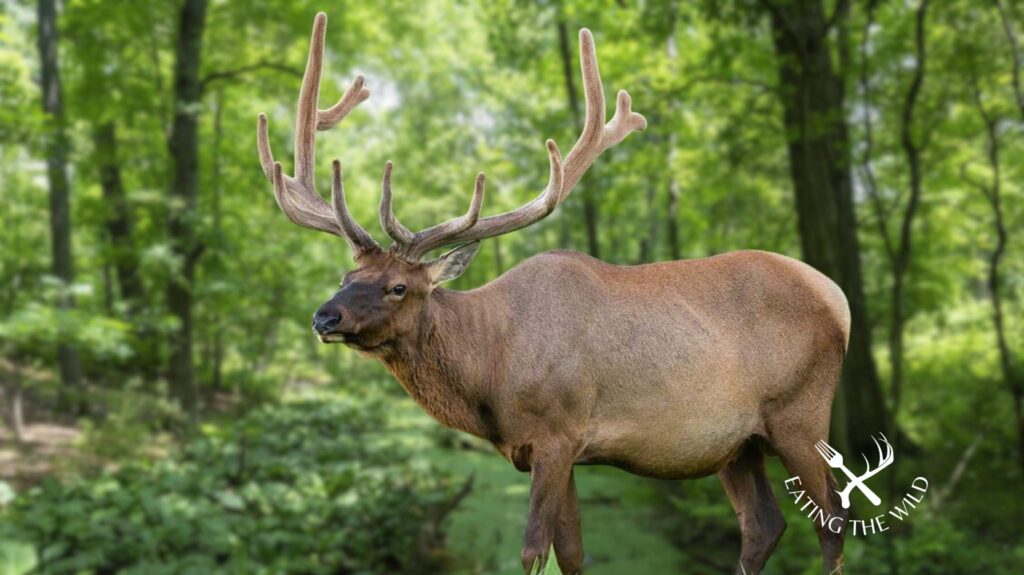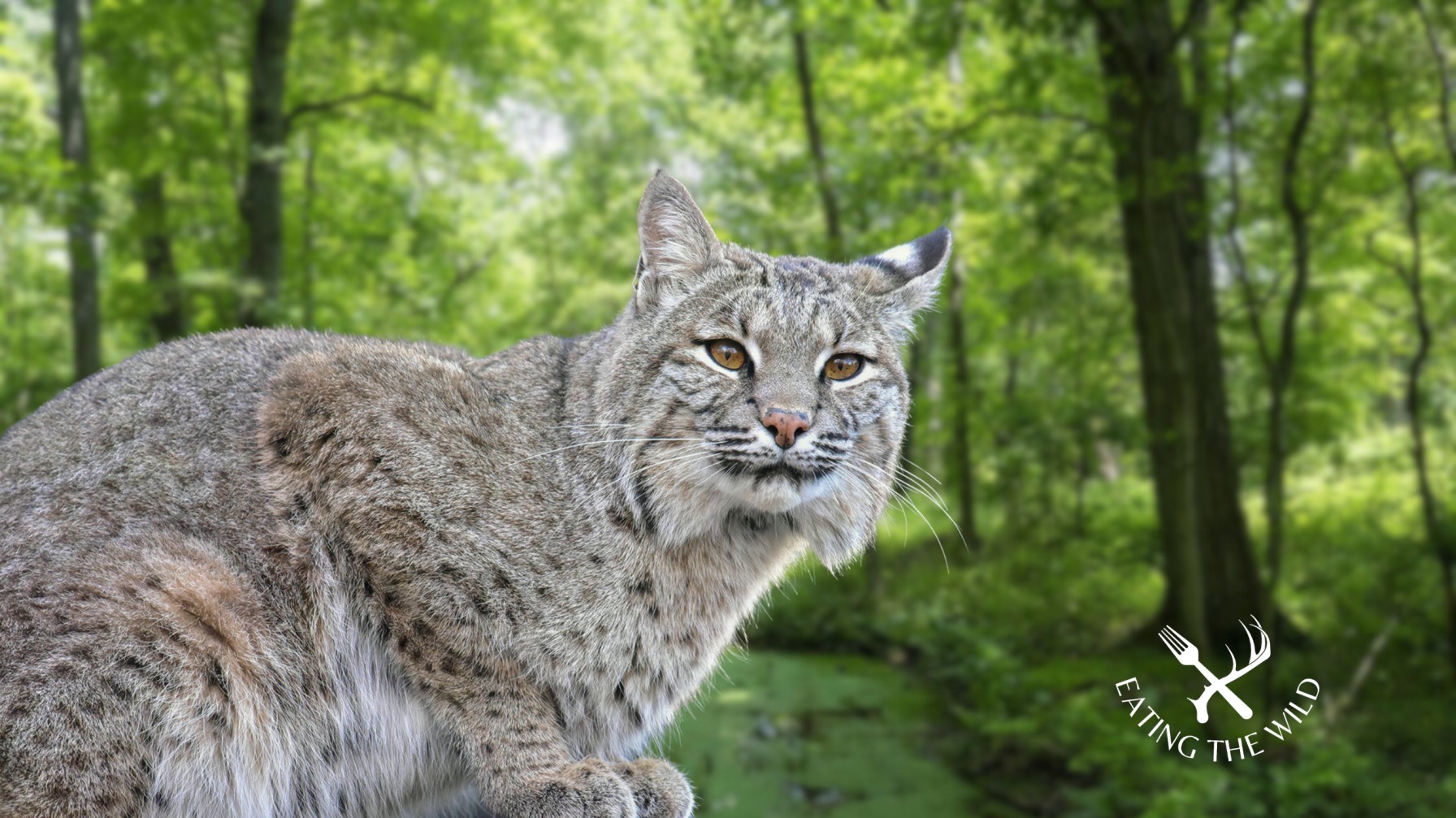
Tennessee, with its rich biodiversity and vast landscapes, offers one of the most diverse and extended hunting seasons in the United States.
From the majestic deer to the elusive bobcat, the state provides hunters with a plethora of opportunities to engage with nature and practice their skills.
In this article, we are going to discuss the hunting seasons of Tennessee in detail, offering insights, dates, and regulations for both beginners and experienced hunters.
Tennessee’s Rich Hunting Tradition
Nestled in the heart of the American South, Tennessee’s hunting heritage is as old as the state itself.
The indigenous tribes that once roamed these lands, such as the Cherokee and the Chickasaw, were adept hunters, relying on the abundant wildlife for sustenance and trade.
As settlers arrived, they too adopted the hunting practices, integrating them into their daily lives and culture.
Landscapes:
The state’s diverse landscapes, ranging from the misty Appalachian Mountains in the east to the Mississippi River plains in the west, have always been a haven for a multitude of game species.
Over the centuries, hunting in Tennessee has evolved from a means of survival to a cherished sport and tradition. Family hunting trips passed down from generation to generation, have become rites of passage for many Tennesseans.
Events & Festivals:
Festivals, competitions, and community events centered around hunting seasons further underscore its significance.
The camaraderie among hunters, the early morning rituals before a hunt, and the storytelling of memorable hunting escapades by a campfire are integral parts of Tennessee’s cultural fabric.
Moreover, hunting has played a pivotal role in conservation efforts in Tennessee. Hunters, understanding the importance of sustainable practices, have often been at the forefront of wildlife preservation initiatives.
The revenue from hunting licenses and permits has been instrumental in funding conservation projects, ensuring that Tennessee’s rich hunting tradition is preserved for future generations.
Conservation and Ethics
Tennessee’s hunting regulations reflect a deep commitment to conservation.
The rules ensure sustainable hunting practices, protecting both the animals and their habitats.
For instance, the prohibition against hunting albino deer showcases the state’s dedication to preserving its unique wildlife.
Hunting Rules in Tennessee:
- Live Animals: Can’t possess or transport live game. No wild pets allowed.
- Protected Species: Hawks, owls, songbirds, and expanding species like cougars and alligators are protected.
- Roadkill: Game animals killed by vehicles can be possessed with conditions.
- Hunting Hours: Restricted to daylight hours, with specific start and end times.
- Private Land: Need permission to hunt or trap. Written permission advised.
- Stationary Vehicle Hunting: Allowed on private property, not on public roads.
- Assisting Hunters: Bag limit reached? You can accompany but not hunt.
- Handguns: Allowed on TWRA refuges and public hunting areas with conditions.
- Season Start Dates: Specific dates for species like squirrels, deer, and turkey.
Always check the TWRA website for detailed regulations.
Where are the public hunting areas in Tennessee?
In Tennessee, numerous public hunting areas are available for enthusiasts and seasoned hunters alike. These areas are managed and maintained by the state’s wildlife and conservation department to ensure sustainable hunting practices.
They offer diverse terrains and habitats, from dense forests to open meadows, providing opportunities to hunt a variety of game. It’s always recommended to check Tennessee’s official wildlife website or contact local offices for a comprehensive list and maps of these areas.
What guns and equipment can I use during hunting season?
The type of guns and equipment permitted during hunting season in Tennessee varies based on the game species and specific hunting regulations. Commonly used firearms include rifles, shotguns, and muzzleloaders.
Additionally, archery equipment like compound bows, recurve bows, and crossbows might be allowed. It’s essential to be aware of caliber and ammunition restrictions, especially for big game hunting.
Apart from firearms, essential equipment includes camouflage clothing, hunting boots, and safety gear. Always refer to Tennessee’s hunting regulations guide to ensure you’re using approved equipment.
What are the limits for Tennessee counties?
Each county in Tennessee may have specific bag limits and restrictions based on the local wildlife population and conservation goals. These limits dictate the number of animals a hunter can harvest in a day or throughout the season.
They are set to ensure sustainable hunting practices and a balanced ecosystem. It’s crucial for hunters to familiarize themselves with these limits before heading out, as they can vary from one county to another. Tennessee’s official wildlife website typically provides a detailed breakdown of county-specific limits and regulations.
Deer Hunting in Tennessee:

Tennessee’s lush landscapes and rich hunting traditions make it a prime location for hunters across the nation.
Among the various game that roams its terrains, the white-tailed deer stands as a symbol of the state’s wild beauty and hunting heritage.
Here’s an in-depth look at deer hunting in Tennessee.
Popularity and Tradition
Deer hunting in Tennessee is not just a seasonal activity; it’s a deeply rooted tradition.
The state’s vast forests, meadows, and river valleys provide an ideal habitat for the white-tailed deer, making it a favorite among local and visiting hunters.
With one of the longest deer hunting seasons in the country, Tennessee ensures that hunters have ample opportunities to engage with this majestic creature, whether they’re novices looking for their first catch or seasoned hunters seeking a challenging pursuit.
Key Regulations for Deer Hunting
Understanding the regulations is crucial for a successful and ethical hunting experience.
Here are some of the key points every hunter should be aware of:
| Aspect | Details |
| Statewide Bag Limit | For antlered bucks, hunters are allowed a limit of two per season, with a maximum of one per day. |
| Antler Regulations | To be considered a legal buck, the deer must have antlers that are a minimum of three inches in length. Any deer with antlers less than this is categorized as antlerless under Tennessee’s hunting regulations. |
| Albino Deer | Hunting or trapping albino deer is strictly prohibited in Tennessee. This regulation underscores the state’s dedication to conservation and the preservation of its unique wildlife. |
Season Dates for Deer Hunting
Timing is everything when it comes to hunting. Knowing the specific dates for each hunting season ensures that hunters can plan their trips accordingly.
Here’s a breakdown of the deer hunting seasons in Tennessee:
| Season Type | Dates |
| Archery | August 25-27 and September 23-October 27 |
| Gun/Muzzleloader/Achery | August 25-27 |
| Young Sportsman | Specific dates in October and January (hunters should refer to the official TWRA website for exact dates) |
| General Season | November 19-January 8 |
Deer hunting in Tennessee is a blend of tradition, skill, and respect for nature. The state’s regulations ensure that the deer population remains healthy and sustainable, allowing future generations to partake in this cherished activity.
Whether you’re perched in a tree stand with your bow, tracking a buck through the woods, or sharing hunting tales by the campfire, deer hunting in Tennessee offers an experience like no other.
Elk Hunting in Tennessee:

Tennessee, renowned for its rich hunting traditions and diverse wildlife, has reintroduced the majestic elk to its landscapes.
Once native to the region but extirpated due to overhunting and habitat loss, the elk’s return has been a conservation success story.
Today, the state offers exclusive opportunities for elk hunting, making it a sought-after experience for hunters.
The Allure of Elk Hunting
Elk, with their impressive stature and iconic bugling calls, is one of North America’s most iconic big game animals.
Hunting them requires a combination of skill, patience, and a deep understanding of their habits and habitats.
Their keen senses, especially their ability to detect scents and sounds, make them a challenging yet rewarding quarry for hunters.
Quota Hunts and Permits
Elk hunting in Tennessee is unique in that it operates on a quota system. This means that only a limited number of hunting permits are issued each year, ensuring that the elk population remains sustainable and healthy.
Hunters must apply for these permits, and a lottery system determines the lucky few who get the chance to pursue these magnificent creatures.
This exclusivity adds to the allure of elk hunting in the state, making it a once-in-a-lifetime experience for many.
Season Dates for Elk Hunting
Timing, as with all hunting endeavors, is crucial for elk hunting.
Being aware of the specific dates for each hunting season allows hunters to prepare adequately and increases their chances of a successful hunt.
Here’s a detailed breakdown of the elk hunting seasons in Tennessee:
| Season Type | Dates |
| Archery | September 24-30 |
| Young Sportsman | October 1-7 |
| General Season | October 8-14 |
Elk hunting in Tennessee is more than just a hunting trip; it’s an adventure.
The state’s commitment to conservation and sustainable hunting practices ensures that these majestic species thrive for future generations.
Small Game Hunting in Tennessee:

While Tennessee is often celebrated for its big game hunting opportunities, the state’s small game hunting scene is equally vibrant and offers a unique set of challenges and rewards.
From the nimble squirrel darting through the treetops to the elusive grouse hiding in the underbrush, small game hunting in Tennessee is a testament to the state’s rich biodiversity and hunting traditions.
Small Game Hunting
Small game hunting is often where many hunters begin their journey. The skills honed while pursuing smaller animals – stealth, precision, and patience, are foundational for any hunter.
Moreover, small-game hunting offers more frequent opportunities for success, making it especially appealing for novices and seasoned hunters alike.
Diverse Species, Diverse Challenges
Each small game species presents its unique set of challenges:
- Rabbit: Known for their speed and unpredictable zig-zag running patterns, hunting rabbits often involves both stalking and the use of hunting dogs to flush them out.
- Raccoon: Mostly nocturnal, raccoon hunting is a unique experience often involving the use of coonhounds and taking place under the starry Tennessee night sky.
- Grouse: These birds are known for their sudden and explosive flight, often surprising hunters and testing their reflexes.
- Quail: These ground-dwelling birds are often pursued with the help of pointing dogs, which locate the birds and “point” towards them, allowing hunters to approach and flush them out.
Season Dates for Small Game Hunting
To ensure sustainable hunting practices, Tennessee has specific dates for each small game species:
| Species | Season Dates |
| Squirrel | August 27-March 15 and May 13-June 11 |
| Rabbit | November 5-February 28 |
| Raccoon | September 17-February 28 |
| Grouse | October 8-February 28 |
| Quail | November 5-February 28 |
Also, Tennessee offers open seasons for bullfrogs, coyotes, groundhogs, and striped skunks, allowing hunters a broad spectrum of wildlife to engage with throughout the year.
Small game hunting in Tennessee is a celebration of the state’s diverse ecosystems and wildlife. It offers hunters the chance to engage with nature on a more intimate level, honing their skills and understanding of the animals they pursue.
Squirrel Hunting in Tennessee:

Often considered a gateway into the world of hunting, pursuing these agile and alert creatures offers both challenges and rewards that resonate with hunters of all ages and skill levels.
The Squirrel:
The squirrel, with its bushy tail and darting eyes, is a common sight in Tennessee’s forests and backyards. Predominantly tree-dwellers, squirrels are known for their agility, speed, and keen senses.
Their ability to quickly scamper up trees, jump from branch to branch, and hide among the leaves makes them a challenging quarry.
There are primarily two species of squirrels hunted in Tennessee: the gray squirrel and the fox squirrel.
While the gray squirrel is more common and tends to be smaller, the fox squirrel is larger and can be found in specific habitats, often near the edges of woodlands.
Techniques and Tactics
Squirrel hunting requires a blend of stealth, patience, and sharp shooting skills. Here are some popular techniques:
- Still Hunting: This involves moving slowly and quietly through the squirrel’s habitat, stopping frequently to listen and watch for signs of activity.
- Spot and Stalk: Hunters locate squirrels from a distance, often using binoculars, and then approach quietly for a clear shot.
- Calling: Using squirrel calls can sometimes provoke curious squirrels to reveal their location.
Equipment and Gear
While .22 caliber rifles are a popular choice for many squirrel hunters due to their accuracy, shotguns can also be effective, especially in areas with denser foliage.
Lightweight camouflage clothing, comfortable boots, and a quiet approach are essential for a successful hunt.
Season Dates and Regulations
In Tennessee, squirrel hunting has specific seasons to ensure sustainable hunting practices:
| Season | Dates |
| Regular Season | August 27-March 15 |
| Spring Season | May 13-June 11 |
It’s essential for hunters to be aware of bag limits and other regulations set by the Tennessee Wildlife Resources Agency (TWRA) to ensure ethical and sustainable hunting.
Bobcat Hunting in Tennessee:

The elusive bobcat, with its tufted ears, spotted coat, and secretive nature, is one of the most sought-after game animals for hunters seeking a challenge in Tennessee.
Known for their stealth and nocturnal habits, hunting bobcats requires a combination of skill, patience, and a deep understanding of their behavior.
The Bobcat:
Bobcats, named for their short, bobbed tails, are medium-sized wildcats that inhabit a variety of environments, from forests and swamps to suburban areas.
Their keen senses, especially their night vision, make them formidable predators. They primarily prey on rabbits, birds, rodents, and even deer. Their ability to blend into their surroundings and move silently makes them a challenging quarry for hunters.
Techniques and Tactics
Hunting bobcats often involves the use of calls to mimic the distress sounds of their prey, luring the curious bobcat into the open.
Many hunters also use trail cameras to monitor bobcat activity in a particular area, helping them identify patterns and prime hunting spots.
Season Dates for Bobcat Hunting
In Tennessee, there are specific dates set for bobcat hunting to ensure sustainable and ethical hunting practices:
| Season | Dates |
| Bobcat Season 2022 | November 19th to February 28, 2022 |
| Bobcat Season 2023 | November 18th to February 28, 2023 |
Hunting hours typically run from 1/2 hour before sunrise to 1/2 hour after sunset.
Frequently Asked Questions
What are the primary game animals available for hunting in Tennessee?
Tennessee offers a diverse range of hunting opportunities, including deer, elk, turkey, and various small game animals such as squirrels, rabbits, raccoons, grouse, and quail.
There are seasons for other wildlife like bobcats, bullfrogs, coyotes, groundhogs, and striped skunks.
Are there specific regulations I should be aware of when hunting deer in Tennessee?
Yes, there are specific regulations for deer hunting. For instance, the statewide bag limit for antlered bucks is two per season with a maximum of one per day.
Legal bucks must have antlers a minimum of three inches in length. Hunting or trapping albino deer is prohibited in Tennessee.
How does the quota system for elk hunting work in Tennessee?
Elk hunting in Tennessee operates on a quota system, meaning only a limited number of hunting permits are issued each year. Hunters must apply for these permits, and a lottery system determines who gets the chance to hunt elk.
This system ensures the elk population remains sustainable and healthy.
